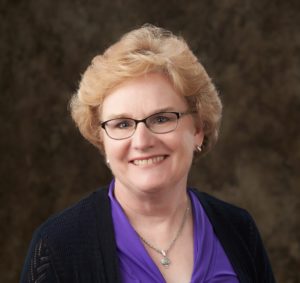
September is National Suicide Prevention month. Suicide isn’t something we associate much with September, nor is it a topic we actively discuss. However, suicide is a troubling public health issue that leaves a lasting impact on families and communities. Between 1999 and 2019, the suicide death rate increased 33%.
One of our most vulnerable populations to suicide is our older adults. Suicide is a direct reflection of mental illness – another topic that is continually swept under the rug, especially for older adults. Living in a rural community seems to be an additional contributor to its occurrence.
Some of my previous articles have focused on stress levels, isolation, having a purpose in life and how they are important factors to our mental health. When either of these are seemingly out of control, our mental health declines – often in the form of depression. Research has shown a strong link between suicide and depression.
While depression can exist at different intervals over the lifespan, older adults may experience multiple factors at the same time contributing to depression, such as: chronic medical illness, chronic pain, loss of physical functioning, prior depressive episodes, reliving bad experiences, recent loss, and dementia to name a few.
Other risk factors include social isolation and family history with one of the most prevalent factors being loneliness. Living a distance from family while trying to cope with the death of a lifelong spouse, close family or friends, can be a struggle. Research has shown that bereavement experienced by older adults can often trigger major depression.
Suicide rates among older adults are underreported. This generation tends to use passive self-harm behaviors that may result in death, such as refusing food, medications or liquids which are rarely recorded as suicide attempts. These paths are much less obvious than a medication overdose, for example.
A person who is at risk of suicide is rarely clear of their intentions. Such an individual is experiencing a pain that is difficult to talk about. Signs of suicidal thoughts or tendencies can include increased feelings of anxiety and hopelessness, withdrawal from people or activities they ordinarily enjoy, negative thoughts or a preoccupation with death, strong feelings of guilt or low self-esteem. These and other signs may be recognized by staying in tune through casual conversation, paying attention to the content of letters and notes or noting changes in actions or behaviors.
Rushing to create or change wills or other legal documents can sometimes be an indication of a wish for life to end. We should all take the legal steps necessary to make sure our wishes are met at end-of-life. Unfortunately, we humans often procrastinate in getting our end-of-life documents in order. When discussions dwell on these legal documents, take time to encourage conversations that can more clearly define the reasoning behind those actions.
As we age, we are bound to experience periods of feeling bad or go through loss and grief. So often there is a belief that it’s a normal part of aging. We need to recognize we can recover from those periods and that sometimes those feelings need to be targeted by professionals. None of us should feel like we are swimming in the middle of the ocean with no life preserver.
Day-to-day activities we can do to improve our mental health include regular exercise, good nutrition, taking medications as prescribed, contact with other people, staying hydrated, and regular visits with primary care providers.
We should all assess our own mental health on a regular basis. Do not hesitate to visit with your care provider if there is something you can’t seem to get around on your own. He/she may help in determining if it is a physical or medication related effect you are feeling. If those pieces to the puzzle are ruled out, it’s okay to seek out a mental health professional.
If you or someone you know may be experiencing suicidal tendencies, contact Southeast Kansas Mental Health with offices in Humboldt, Iola, Chanute, Fort Scott, Pleasanton and Yates Center. Resources to assist with difficult conversations are available at www.suicideispreventable.org. The National Suicide Prevention Hotline is 1-800-273-8255.
K-State Research and Extension is an equal opportunity provider and employer.
